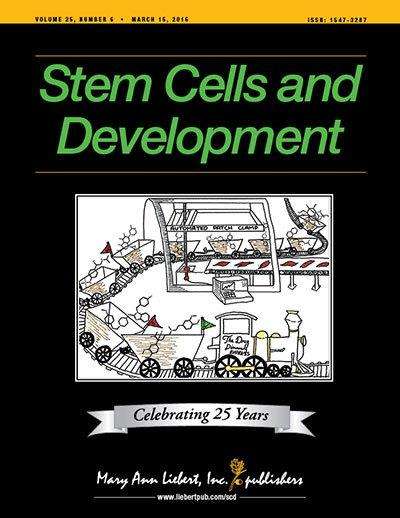Credit: ©Mary Ann Liebert, Inc., publishers
A new study demonstrates that iPSC have the potential to differentiate into multiple lineages of functional lymphocytes, including CD4+ T cells, B cells, and natural killer cells, without bias. The ability to generate truly functional lymphocytes from somatic cell-derived hematopoietic stem cells supports the clinical application of iPSC technology to develop treatments for hematological disorders, as concluded in the study published in Stem Cells and Development.
Tianshu Lan and coauthors from Medical College of Xiamen University (Xiamen City) and Chinese Academy of Sciences (Beijing), China, provided a normal environment in which to compare the growth and differentiation capacity of hematopoietic cells derived from IPSC and from embryonic stem cells (ESC). The results show that lymphocytes generated from iPSC had the same capacity to proliferate and secrete chemical signals such as cytokines as did those from ESC when stimulated.
In the article "Induced Pluripotent Stem Cells Can Effectively Differentiate into Multiple Functional Lymphocyte Lineages In Vivo with Negligible Bias", the researchers further report that lymphocytes generated by iPSC-derived bone marrow cells could repopulate the hematopoietic systems of lethally irradiated recipient animals.
"This sort of side-by-side characterization and demonstration of the differential potential of iPSC and ESC is an absolute necessity to elevate what we do in stem cell research from conjecture and assumption to rigorous applicability and then clinical translation," says Editor-in-Chief Graham C. Parker, PhD, The Carman and Ann Adams Department of Pediatrics, Wayne State University School of Medicine, Detroit, MI.
More information: Tianshu Lan et al. Induced Pluripotent Stem Cells Can Effectively Differentiate into Multiple Functional Lymphocyte Lineages In Vivo with Negligible Bias, Stem Cells and Development (2016). DOI: 10.1089/scd.2015.0248
Journal information: Stem Cells and Development
Provided by Mary Ann Liebert, Inc




















